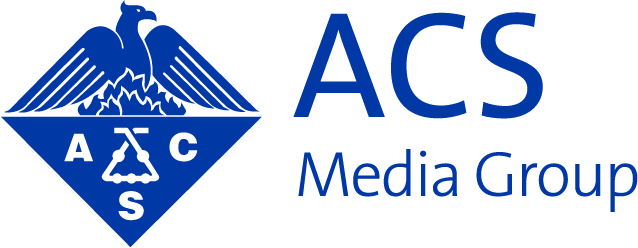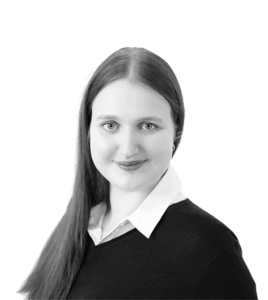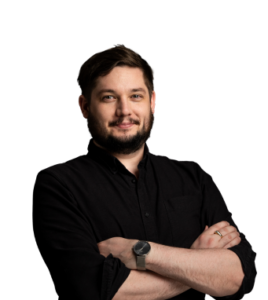Guest writer Jesse Harris is a Digital Marketing Coordinator at ACD/Labs. He has been creating internet content since 2016, and has Master’s degrees in both chemistry and chemical engineering. He loves helping STEM experts communicate their science more impactfully.
AI was one of the hottest topics of 2022. It began with AI art and illustration tools making a splash on social media, such as OpenAI’s Dall-E. Shortly afterward, OpenAI announced that DeepMind had solved the structure of almost every protein, which was big news for the world of biochemistry. A new wave of interest came when OpenAI released ChatGPT, a free-to-use AI writing tool. This trend has generated a debate about the impact of AI technology on education, copyright law, as well as the ethics of AI.
As a science marketer, I was interested in a different question: is AI science writing and science marketing even viable? To answer this, I tested Jasper and ChatGPT, which are among the most popular paid and unpaid AI writing tools (respectively) as of early 2023. While I can’t exhaustively review all the AI writing software available on the market, I expect this would give me a sense of what this technology can do.
So, is AI writing software ready for use in science content? Let’s find out…
AI Writers Are Not Science Fact Checkers
A crucial point to understand about AI writers is their shaky “knowledge.” While their content sounds confident and intelligent, they can get basic facts wrong.
AI writers get their information comes from books, articles, and web pages. This info is added in batches by the developers rather than allowing the software to pull data from the internet continually. This means AI writers know nothing about recent events. When I tested ChatGPT, it thought that Justice Breyer was still on the Supreme Court and the most recent winners of the Nobel Prize in chemistry were Emmanuelle Charpentier and Jennifer Doudna (who won in 2020).
Not knowing about recent events is an issue, but you can compensate– don’t rely on AI for current information. A more pressing issue for science writers and marketers is that AI writers don’t understand science. I’ll share an example…
One of my first tests for the AI writing tools was asking them to write a blog post about choosing HPLC columns. This seemed an adequate challenge – while technical, column selection has been written about many times in academic papers, trade publications, textbooks, and blogs for years. An AI writer familiar with the fundamentals of chromatography should be able to write a competent article.
The results could have been better. For example, ChatGPT said that C-18 columns are polar (they are non-polar). Jasper got C-18 columns right but said silica columns were both polar and non-polar. These programs don’t “understand” polarity, a concept taught as early as high school. An error like this in a scientific article or advertisement would burn your credibility with any chemist.
Here is a more dramatic demonstration:
ChatGPT generated fake citations. That is a pretty bold fabrication.
To be fair to the developers, they warn that these tools make mistakes. Users need to remember these are AI writers, not researchers. The answers are partially correct and sound “science-y,” so they are convincing at first glance. Many non-scientists will believe the robots, even though the accuracy is probably worse than the average Wikipedia article.
Since all science writing, including science marketing writing, relies heavily on facts, anything written by an AI is going to need to be thoroughly fact-checked. Wouldn’t it be easier to write the content yourself?
Quality of AI Writing for Science and Marketing
Leaving aside the accuracy issues, how is the quality of the writing? There are pluses and minuses. First, the good:
- I didn’t notice many grammatical mistakes, run-on sentences, or nonsense passages, though repetition can sometimes be an issue
- The vocabulary was decent, without feeling like I was reading a thesaurus
- Scientific terms were used correctly for the most part
Honestly, the sentence-level writing was significantly better than many university-educated people I know. Where these programs struggled was the big picture…
- The AI science writing I’ve come across has been consistently bland. Some non-science content is better, but the science writing is dry.
- Modifiers like “use an exciting tone” didn’t substantially improve the quality.
- The structure was the most significant problem, especially with Jasper – sentence order felt disorganized, and ideas weren’t sequenced well.
Overall, the quality was passable in most cases, though not impressive. More practice on my end would also help – this technology is not as “plug-and-play” as it appears.
Google On Robots – SEO and AI Writing
How does AI-written content perform in terms of search engine optimization (SEO)? It is hard to say for sure, especially given the variety of software available on the market. Many AI writing tools claim to write SEO-friendly text, but I wouldn’t be able to evaluate that without heaps of testing.
While I can’t evaluate their SEO performance conclusively, I am not optimistic that these tools will help you rank for highly competitive keywords. There are a few issues…
Links
One of the ranking factors for Google is outbound link quality. The AI-written content I have seen doesn’t include links or sources, though you could fix this problem by going through the text afterward and adding relevant links. Internal links are also not included in AI-written content, though that has a greater impact on the rest of your website rather than the content written by the robot.
Original Research
Top ranking content for the most competitive topics often includes original research or features a lot of data. AI software can only do this writing if you feed them the information.
Up-to-Date and Trustworthy
AI writers struggle to write accurately about technical topics and are unaware of recent events (as described above). Google prefers content with relevant experience, expertise, authority, and trustworthiness (“E-E-A-T”), which will challenge AI writers.
Keyword Choice
Some AI writing software integrates SEO information such as the competitiveness or search volume of a range of keywords. This feature is handy but is not a substitute for conventional keyword research and content strategy.
Of course, there are plenty of keywords that aren’t competitive. AI-written content could probably rank for many of those terms with minimal effort from the user. But if you want to rank for popular keywords relevant to scientists, I’d bet on a decent SEO writer over AI software.
What does Google think about AI writing tools? Not long ago, at least one representative suggested the search engine would treat “automatically” generated content as spam. However, a recent post on the official Google Search Central blog said the following:
“…however content is produced, those seeking success in Google Search should be looking to produce original, high-quality, people-first content demonstrating qualities [of] E-E-A-T.”
While AI-written content is allowed, content that looks like spam could tank your rankings. Quality is still extremely important.
Uses for AI in Science Marketing
While I am not enthusiastic about AI writing for most science writing and marketing content, some applications are worth considering. One AI writing tool that is underrated is Wordtune. Rather than writing entire essays, Wordtune offers alternative wording for specific sentences, helping you fix those bits of text that cause the most grief. This takes advantage of AI writing’s strength at sentence-level writing without having to deal with the limitations.
Another application is personalized content. Using a combination of AI and human writing, you could create custom versions of the same content. Imagine you fill out a webinar sign-up form with your company name and job title. Instead of a typical “thanks for signing up” message, you also receive a mini-eBook that includes information customized to your job – that would get my attention!
Personalized content could also fit into your marketing automation program. You could use AI to quickly write emails for AB testing, which would help increase your performance without investing time into writing yourself.
And these are just the beginning! Imagine how much could be done when this AI writing software is integrated with email and marketing automation technology.
The Final Verdict: AI Writing Not Fit for Science Marketing Content… Yet
Ultimately, this will be subjective, both when it comes to taste and the effort needed to get value from AI writing. Every science marketer should try this technology out to see if it works for them. Personally, I don’t think it will be helpful for me until the technology’s science knowledge is substantially improved.
But remember, this technology is evolving quickly. Hype around AI writing will generate tons of data for developers to use. Before long, companies might be able to easily build AI writers equipped with company-specific data, which would be a gamechanger. Though AI software tools may not be ready to handle science marketing writing, it will only be a couple of years before blogs like this are co-written by machines.
For more science marketing insights and tips, subscribe to our monthly newsletter at acsmediakit.org/subscribe.


















